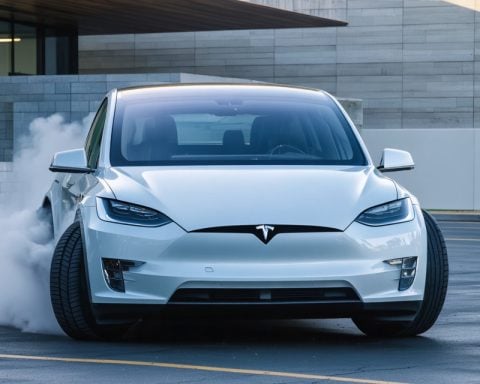Revolutionary Funding for Clean Vehicles
The Environmental Protection Agency (EPA) has initiated a groundbreaking funding program aimed at promoting clean, heavy-duty vehicles across the nation. This marks the inaugural distribution of funds under the ‘Clean Heavy-Duty Vehicles Grant Program,’ which seeks to enhance the adoption of zero-emission vehicles.
Among the notable recipients, Boston Public Schools stands out, receiving over $35 million to upgrade 125 traditional school buses with zero-emission alternatives and to implement advanced charging solutions. Another key beneficiary, Saint Louis Public Schools, will receive more than $10 million to replace aging buses.
In a significant investment, the North Central Texas Council of Governments (NCTCOG) will allocate a total of $60 million, enabling the replacement of 234 vocational vehicles with zero-emission options. While the majority of supported vehicles are anticipated to be battery-electric, there may also be initiatives focusing on hydrogen fuel cell technologies.
This funding initiative is part of the broader goals established by the US Inflation Reduction Act (IRA), which is designed to phase out older, polluting heavy-duty vehicles in favor of cleaner alternatives. The EPA highlights that these funds are not only intended for vehicle replacements but can also support infrastructure improvements and workforce training.
The Biden-Harris Administration is dedicated to fostering a cleaner future, aiming for healthier communities through innovative transportation solutions.
Transforming Transportation: The Future of Clean Heavy-Duty Vehicles
Revolutionary Funding for Clean Vehicles
The Environmental Protection Agency (EPA) has launched a transformative funding initiative known as the ‘Clean Heavy-Duty Vehicles Grant Program.’ This program is expected to be a pivotal step in promoting the adoption of clean, heavy-duty vehicles across the United States. By providing financial resources to various entities, the EPA aims to accelerate the transition to zero-emission vehicles.
Key Recipients and Their Impact
Significant recipients of this funding include:
– Boston Public Schools: With a staggering allocation of over $35 million, the district plans to convert 125 traditional school buses into zero-emission vehicles while also enhancing their charging infrastructure. This initiative not only supports a greener environment but also promotes the health and safety of students and staff.
– Saint Louis Public Schools: Receiving more than $10 million, this school system will replace its aging fleet of buses, reinforcing the nation’s commitment to cleaner transportation options for students.
– North Central Texas Council of Governments (NCTCOG): This council’s $60 million investment will facilitate the replacement of 234 vocational vehicles, significantly reducing emissions in the region.
Technological Innovations in Vehicle Replacement
The majority of the vehicles funded through this program are likely to be battery-electric. However, the inclusion of hydrogen fuel cell technology represents an important diversification in approaches to achieving zero-emission goals. This reflects a broader trend towards exploring various clean technologies to meet emissions targets and reduce dependency on fossil fuels.
Wider Implications of Funding Initiatives
This funding initiative aligns closely with the objectives outlined in the US Inflation Reduction Act (IRA), which seeks to phase out older, more polluting vehicles. The EPA emphasizes that these funds can be utilized not only for vehicle replacements but also for necessary infrastructure advancements and workforce training to support the transition.
Pros and Cons of the Clean Heavy-Duty Vehicle Program
Pros:
– Reduction in greenhouse gas emissions and pollutants.
– Improvement in public health through cleaner air.
– Job creation in new green technologies and infrastructure.
Cons:
– Upfront costs associated with transitioning to electric or hydrogen vehicles.
– Need for established charging and maintenance infrastructure.
– Potential resistance from industries reliant on traditional vehicle fleets.
Future Predictions for Clean Transportation
As the Biden-Harris Administration pushes for a cleaner future, the implications of such funding programs are extensive. The expectation is that, over the next decade, there will be a marked increase in the number of zero-emission heavy-duty vehicles on the road, driven by technological advancements and supportive policies.
Market Insights and Trends
The trend toward electrification in heavy-duty vehicles is gaining traction, with market analysts predicting a robust shift as schools, municipalities, and private companies begin to adopt these innovative technologies. The transition not only signifies an important advancement in environmental policy but also opens up new market opportunities for manufacturers of clean vehicle technologies.
Conclusion
The Clean Heavy-Duty Vehicles Grant Program represents a significant commitment to fostering a sustainable transportation future. As funding disperses and projects commence, we are likely to witness a transformation in the way heavy-duty vehicles operate, promoting cleaner air and healthier communities nationwide.
For more information on clean vehicle funding and initiatives, you can visit the EPA homepage.


















